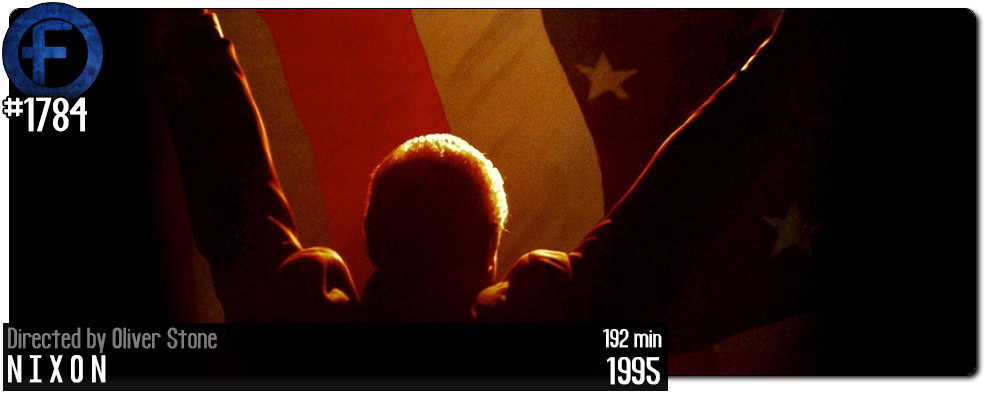Movie Review – Nixon
Principal Cast : Anthony Hopkins, Joan Allen, Annabeth Gish, Marley Shelton, James Woods, JT Walsh, Paul Sorvino, Powers Boothe, EG Marshall, David Paymer, David Hyde Pierce, Kevin Dunn, Saul Rubinek, Fyvush Finkel, James Karen, Mary Steenbergen, Tony Goldwyn, Tom Bower, Sean Stone, Ed Harris, Brian Bedford, Madeline Kahn, Edward Herrmann, Dan Hedaya, Bridgette Wilson, Ric Young, Larry Hagman, Sam Waterston, Boris Sichkin, George Plimpton.
Synopsis: A biographical story of former U.S. President Richard Nixon, from his days as a young boy, to his eventual Presidency, which ended in shame.
********
Off the back of success in 1991 with his Oscar-nominated political hand-grenade JFK, rebel filmmaker Oliver Stone focuses his lens on another former US President, this time Richard Nixon, the only man to hold the top job to resign. Nixon, released in 1995, is a ponderous, colon-busting political epithet attempting to humanise the late President’s life, from his pauper childhood through to his political annihilation, portraying the man as a complex and robust statesman, a indifferent husband, and a specious public figure; a polarising film as well as one far too sonorous to make sense, Nixon’s gargantuan running time and varied incongruous styles make for impressive visuals within an uneven narrative.
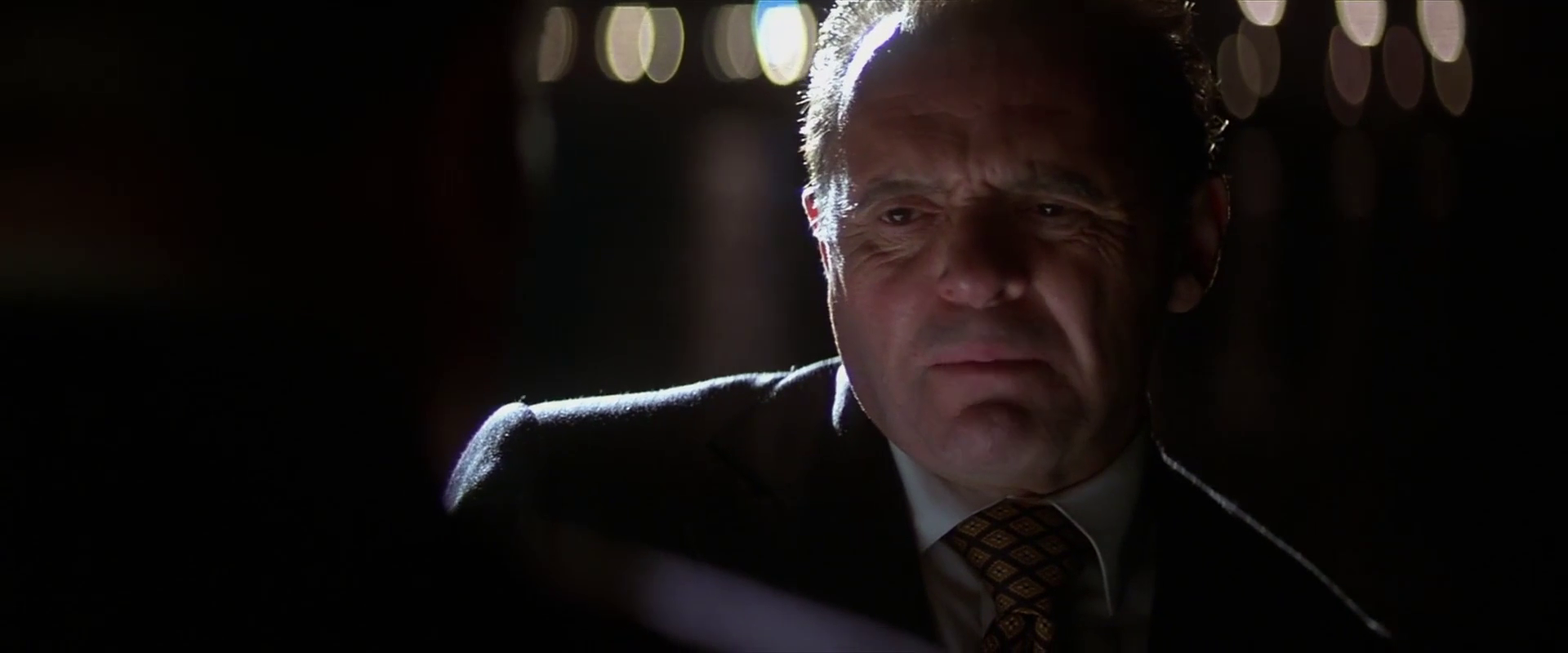
Richard Nixon (Anthony Hopkins) is a Presidential hopeful with a deteriorating relationship with wife Pat (Joan Allen) and his sycophantic staff, including HR Haldeman (James Woods) and John Ehrlichman (JT Walsh). After the events of the Watergate break in by the “White House Plumbers”, led by CIA operative E Howard Hunt (Ed Harris), Nixon’s political career waxes and wanes through several election cycles, before he eventually becomes President in 1969, lasting for five years until resigning in disgrace in 1974, following mounting public pressure for impeachment. Nixon’s obsession with what would become the “Watergate Tapes”, recorded Oval Office conversations that formed the “smoking gun” around with Nixon would resign, as well as his apparent dissociation with reality through prescription medication, are depicted alongside flashbacks to his childhood, his relationship with his mother (Mary Steenburgen), older brother Harold (Tony Goldwyn) and proud father Francis (Tom Bower). Increasingly paranoid, the lugubrious Nixon’s final hours in the White House come not with a bang, but with the resigned whimper of a man defeated by his own inner demons and inability to reconcile the truth.
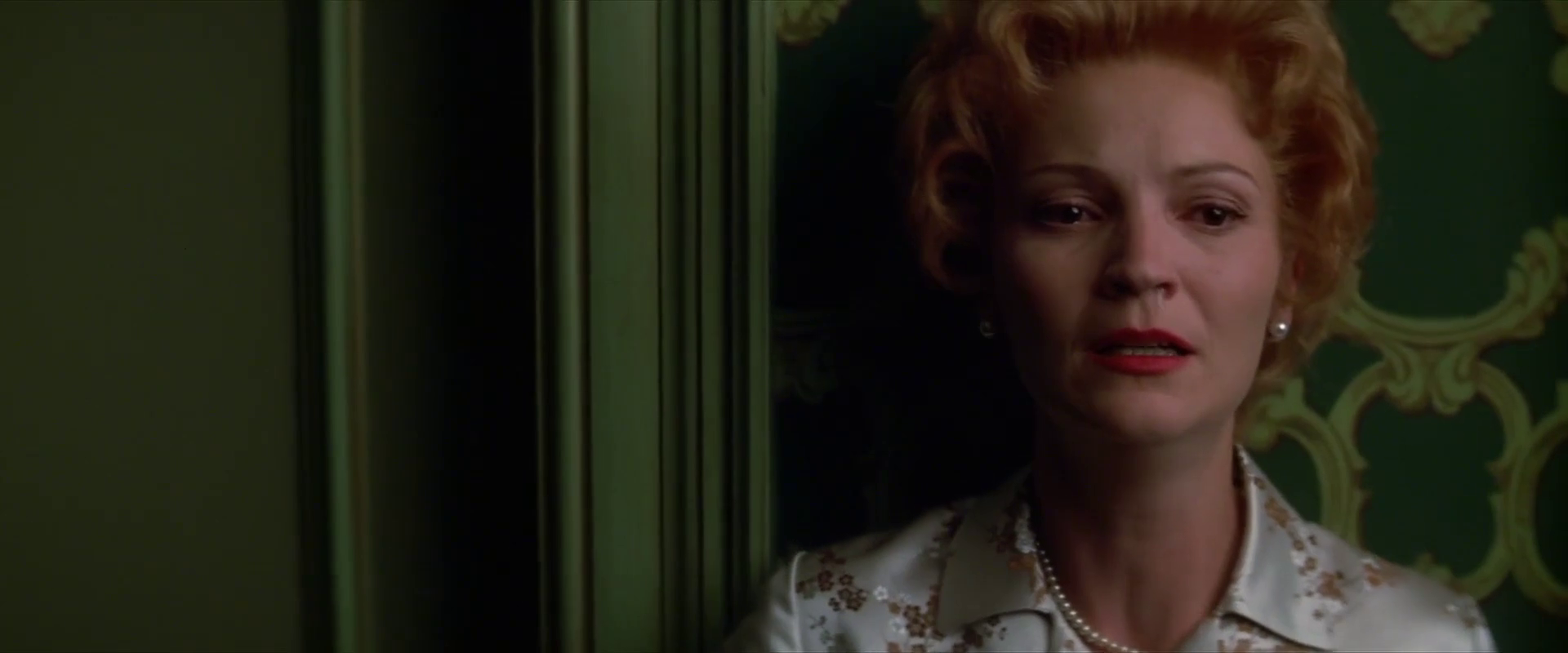
Nixon is, in the pantheon of Presidential films, easily one of the worst. It’s a bloated, diffident affair, lacking propulsion and controversy not elicited by Oliver Stone’s operatic camerawork and flipping over of rocks that have nothing beneath them. Whereas JFK successfully leaned into the conspiracy angle, and delivered a shocking, emotionally weighty account of John F Kennedy’s assassination in 1963, there’s a lot less jumping at shadows in Nixon’s dingy firelit goings-on. Dark in both visual tone and subtext, Nixon is a conceited attempt to JFK-ise the Richard Nixon Presidency, and whether it works or not will depend largely on your ability to concentrate through prolonged obnoxiousness and manufactured umbrage. It’s hard to work out whether Stone admires or detests Nixon here, initially lionising the former President (who passed away the year before the film was released) before honing in on the one thing we’re here to see: the Watergate scandal and its infamous fallout.
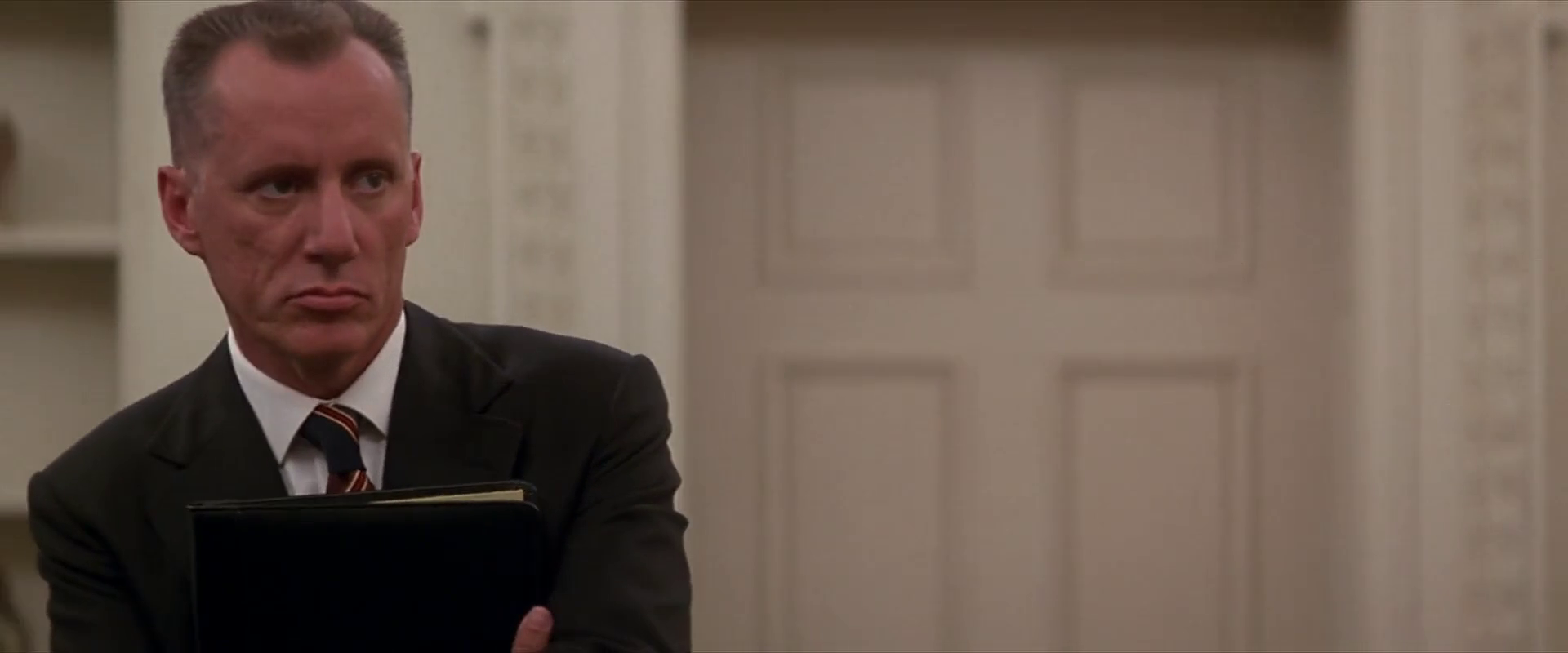
Written by Stone together with Stephen J Rivele and Christopher Wilkinson, Nixon is a fatuous affair in which we’re treated to flashbacks, flashbacks within flashbacks, and all manner of crazy camerawork and editorial overkill. The dialogue is enormously exposition-driven, as you’d expect, in a similar vein to JFK’s storytelling largess, and yet there’s nothing of substance explained to an audience ignorant of the facts. You can’t watch Nixon cold if you’ve never heard of this stuff before; the who and how aren’t represented to a degree casual or younger audiences will understand, and the central figure, played by a rather rotund Anthony Hopkins, is bafflingly opaque. The story just goes for broke, throwing caution and restraint to the wind, although it lacks the underhanded rage of a hidden layer of power JFK had within its withering dissection of the US Government. The plot focuses on Nixon as a man, portraying him as a driven political force and a simpering personal stranger to his own wife (Joan Allen has one single facial expression throughout – a mix of disgust and exhaustion) and can’t quite get the balance right in humanising the President. Fallable humanity is something great films depict with acuity, and despite its inordinate length Nixon is incapable of achieving this in any way.
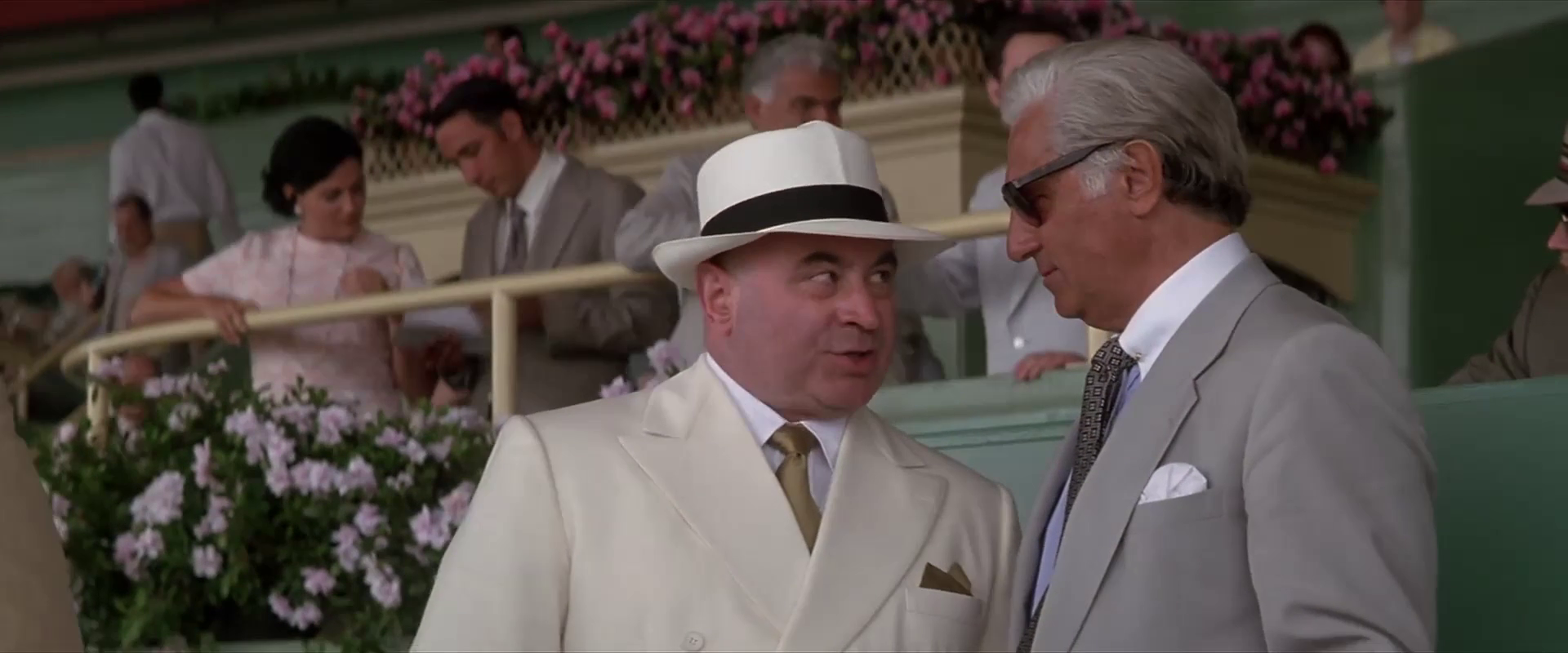
Instead, the film sees Nixon spiral into a nightmare of his own making, a paranoid, delusional junkie unwilling to concede the truth to a baying American public and grossly misjudging the effect this would have on his legacy. The film opens with the Watergate raid and ends with Nixon’s resignation (or rather, the speech he gave to staffers immediately following his live television appearance), and presents a vague and prickly life of a man who came from humble beginnings to the lofty heights of America’s political system, all without actually making us feel something for him. Nixon is an ambivalence, at least as far as this film is concerned. When you have an actor of the calibre of Anthony Hopkins, who plays Nixon himself, and not even he can escape the dense and impenetrable shadowplay Stone burdens him with, you know your film is in trouble. It’s hard to watch the round-faced Hopkins try and do Nixon, himself a slimmer, rakish President with any sense of conviction: his performance is evocative of being award worthy, but the character is too unwieldy to really coalesce into a memorable whole. Hopkins tries, he really does, but he’s saddled with meandering soliloquies and monologues to the point is all becomes white noise.
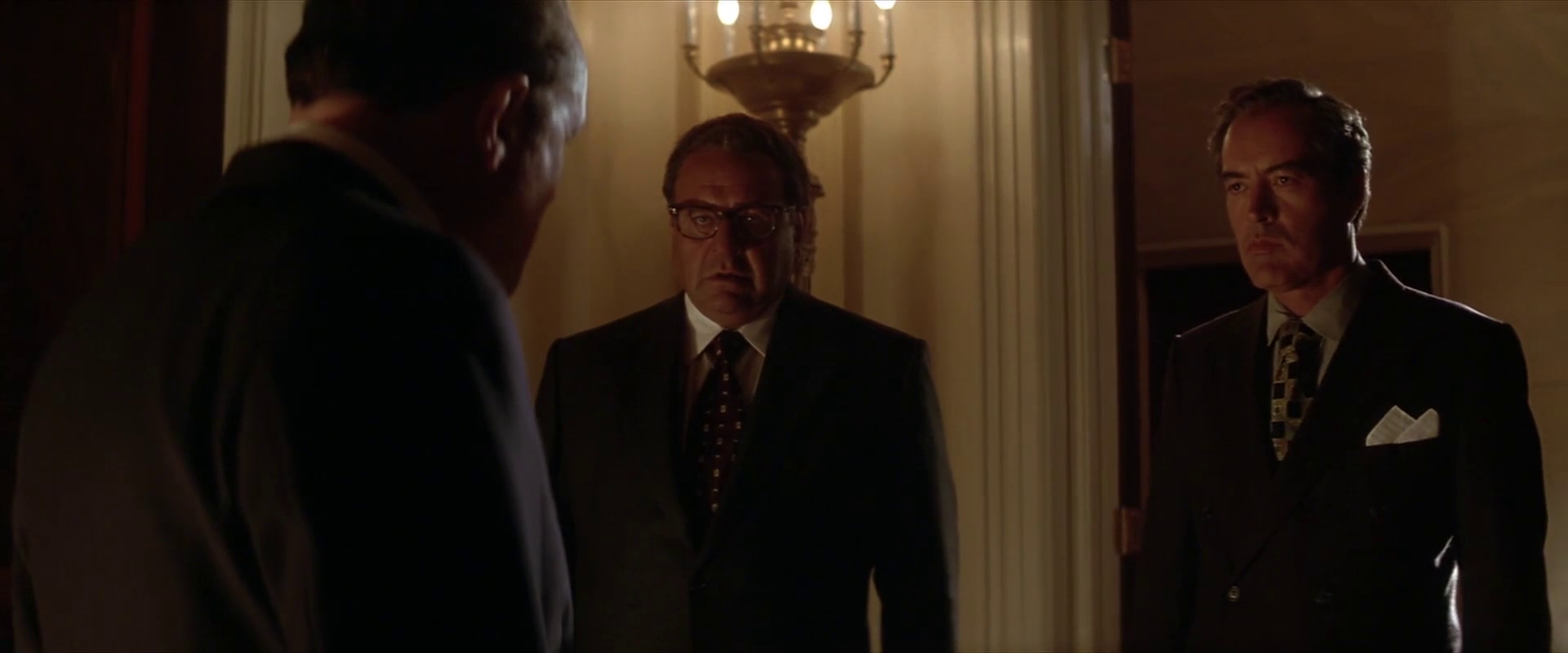
The substantial supporting cast is pure Oliver Stone showmanship. The likes of David Paymer, Ed Harris, Bob Hoskins, Powers Boothe and Larry Hagman (among others) in minor roles provide a texture of “great importance” to the film’s canvas, apropos of the style employed in his earlier films, and while it’s fun to see all these old stagers filling in the blanks, I sometimes feels like stunt casting more than something appropriate to the gravitas of the story. Of course, circling back to Hopkins’ substantial dissimilarity to Nixon himself, the film struggles to work itself out of first gear, meandering sluggishly through a circuitous prevalence of exposition, dramatic iniquity and Stone’s brackish virtuoso style, and were it not for Sir Anthony’s brave attempt to bring humanity to a man largely known as being a political punchline, Nixon would collapse under its own weight. There are some nice touches – a nightmare in which Sam Waterston’s Richard Helms is portrayed as some kind of demon-possessed agitator is particularly jaw-dropping – in the film’s visual style, and the director’s then-newfangled approach to “zany” verite styles rears up here and there to pull you out of the film, but all in all props to Robert Richardson’s cinematography indeed.
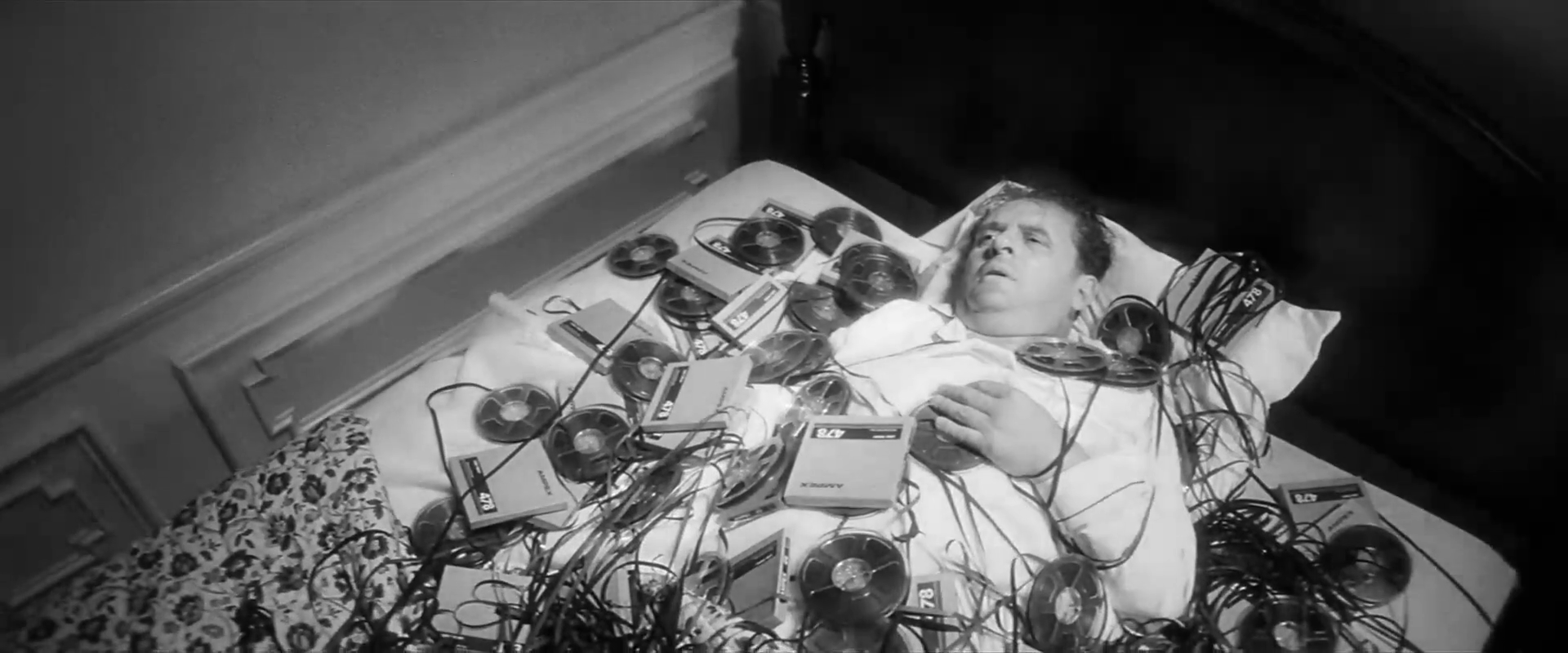
Oliver Stone’s Nixon is an impenetrable ramble about the dark, dangerous world of the US political system, annotated as “the Beast” within the context of the film, and the rise and fall of one of the country’s most polarising political figures. It was also a time where being caught in a lie, or corruption, isn’t seen as the badge of honour the current asshole seems to think it is, but rather as deleterious to your political prospects when the public outrage gains momentum. Sadly, Nixon isn’t the totality of its varied parts, and isn’t anywhere near the powderkeg of revelation JFK became. Instead, it’s a somewhat ruminative, meditative extrapolation of events both real and imagined that never finds its footing despite the breadth to do so and the inclination to subsume controversy for a straight up paranoid thriller.


